- Clone
- 5-271 (See other available formats)
- Regulatory Status
- RUO
- Other Names
- GPIIIb, GPIV
- Isotype
- Mouse IgG2a, κ
- Ave. Rating
- Submit a Review
- Product Citations
- publications
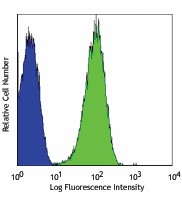
-

Human peripheral blood platelets stained with 5-271 FITC
| Cat # | Size | Price | Quantity Check Availability | Save | ||
|---|---|---|---|---|---|---|
| 336203 | 25 tests | 81€ | ||||
| 336204 | 100 tests | 184€ | ||||
CD36 is an 85 kD integral membrane glycoprotein, also known as GPIIIb, or GPIV. It is expressed on various epithelial and endothelial cells as well as erythrocytes, platelets, macrophages/monocytes and some macrophage-derived dendritic cells. CD36 functions as a scavenger receptor, binding thrombospondin, long chain fatty acids, oxidized LDL, collagen type I, IV, and V as well as apoptotic cells. The 5-271 antibody has been reported to be useful for flow cytometry.
Product DetailsProduct Details
- Verified Reactivity
- Human
- Antibody Type
- Monoclonal
- Host Species
- Mouse
- Immunogen
- Human platelets
- Formulation
- Phosphate-buffered solution, pH 7.2, containing 0.09% sodium azide and BSA (origin USA)
- Preparation
- The antibody was purified by affinity chromatography, and conjugated with FITC under optimal conditions.
- Concentration
- Lot-specific (to obtain lot-specific concentration and expiration, please enter the lot number in our Certificate of Analysis online tool.)
- Storage & Handling
- The antibody solution should be stored undiluted between 2°C and 8°C, and protected from prolonged exposure to light. Do not freeze.
- Application
-
FC - Quality tested
- Recommended Usage
-
Each lot of this antibody is quality control tested by immunofluorescent staining with flow cytometric analysis. For flow cytometric staining, the suggested use of this reagent is 5 µl per million cells in 100 µl staining volume or 5 µl per 100 µl of whole blood.
- Excitation Laser
-
Blue Laser (488 nm)
- Application Notes
-
Additional reported applications (for the relevant formats) include: immunofluorescence2.
- Application References
-
- Stelner E, et al. 2006. J. Cell Sci. 119:459.
- Stewart DA, et al. 2012. Mol. Cancer Res. 10:727. (IF)
- Product Citations
-
- RRID
-
AB_1575025 (BioLegend Cat. No. 336203)
AB_1575025 (BioLegend Cat. No. 336204)
Antigen Details
- Structure
- Integral membrane protein, CD36 family, single chain glycoprotein, 85-113 kD
- Distribution
-
Expressed in various epithelial and endothelial cells, erythrocytes, platelets, monocytes/ macrophages, some macrophage-derived dendritic cells
- Function
- Scavenger receptor for thrombospondin, long chain fatty acids, anionic phospholipids, oxidized LDL, collagen types I, IV and V. Involved in recognition and phagocytosis of apoptotic cells, cell adhesion.
- Ligand/Receptor
- Thrombospondin, anionic phospholipids, oxidized LDL, collage types I, IV, and V
- Cell Type
- Dendritic cells, Endothelial cells, Epithelial cells, Erythrocytes, Macrophages, Monocytes, Platelets
- Biology Area
- Cell Biology, Immunology, Innate Immunity, Neuroinflammation, Neuroscience
- Molecular Family
- CD Molecules
- Antigen References
-
1. Hogg N, et al. 1984. Immunology 53-753.
2. Greenwalt DE, et al. 1992. Blood 80:1105.
3. Armsesilla AL, et al.1994. J. Biol. Chem. 269:18985.
4. Endemann G, et al. 1993. J. Biol. Chem. 268:11811. - Gene ID
- 948 View all products for this Gene ID
- UniProt
- View information about CD36 on UniProt.org
Related FAQs
Other Formats
View All CD36 Reagents Request Custom ConjugationCustomers Also Purchased
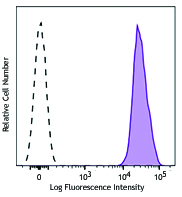

Compare Data Across All Formats
This data display is provided for general comparisons between formats.
Your actual data may vary due to variations in samples, target cells, instruments and their settings, staining conditions, and other factors.
If you need assistance with selecting the best format contact our expert technical support team.
-
Purified anti-human CD36
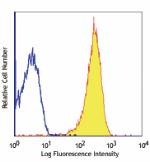
Human peripheral blood platelets stained with purified 5-271... 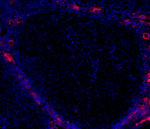
Human frozen tonsil tissue slice was stained with purified a... -
APC anti-human CD36
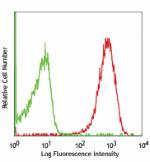
Human peripheral blood platelets stained with 5-271 APC -
APC/Cyanine7 anti-human CD36
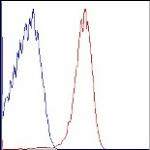
Human peripheral blood platelets stained with 5-271 APC/Cyan... -
FITC anti-human CD36
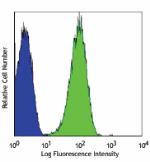
Human peripheral blood platelets stained with 5-271 FITC -
PE anti-human CD36
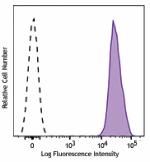
Human peripheral blood platelets were stained with CD36 (clo... -
Purified anti-human CD36 (Maxpar® Ready)
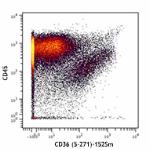
Human PBMCs stained with 154Sm-anti-CD45 (HI30) and 152Sm-an... -
Biotin anti-human CD36
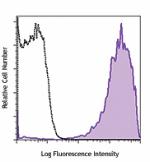
Human peripheral blood platelets were stained with biotinyla... -
APC/Fire™ 750 anti-human CD36
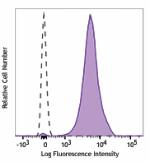
Human peripheral blood platelets were stained with CD36 (clo... -
PE/Cyanine7 anti-human CD36
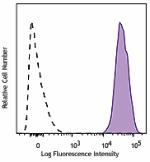
Human peripheral blood platelets were stained with CD36 (clo... -
PerCP/Cyanine5.5 anti-human CD36
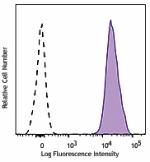
Human peripheral blood platelets were stained with CD36 (clo... -
TotalSeq™-A0407 anti-human CD36
-
TotalSeq™-C0407 anti-human CD36
-
Brilliant Violet 421™ anti-human CD36
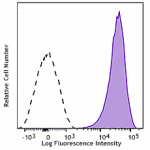
Human peripheral blood platelets were stained with CD36 (clo... -
Alexa Fluor® 488 anti-human CD36
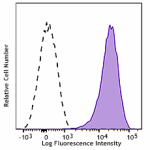
Human peripheral blood platelets were stained with CD36 (clo... -
TotalSeq™-B0407 anti-human CD36
-
Alexa Fluor® 700 anti-human CD36 Antibody
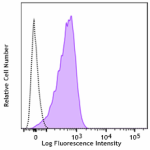
Human peripheral blood platelets were stained with anti-huma... -
TotalSeq™-D0407 anti-human CD36
-
FITC anti-human CD36
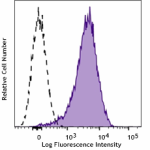
Typical results from human peripheral blood platelets staine... -
APC/Fire™ 750 anti-human CD36
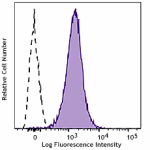
Typical results from human peripheral blood platelets staine... -
GMP FITC anti-human CD36
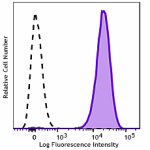
Typical results from human peripheral blood platelets staine... -
GMP APC/Fire™ 750 anti-human CD36
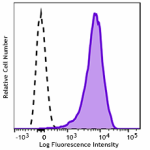
Typical results from human peripheral blood platelets staine... -
Spark YG™ 581 anti-human CD36
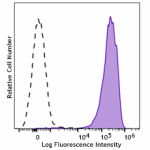
Human peripheral blood platelets were stained with anti-huma... -
Spark Red™ 718 anti-human CD36 (Flexi-Fluor™)
-
Spark Blue™ 550 anti-human CD36

Human peripheral blood platelets were stained with anti-huma... -
PE/Fire™ 640 anti-human CD36

Human peripheral blood platelets were stained with anti-huma...
 Login / Register
Login / Register 















Follow Us